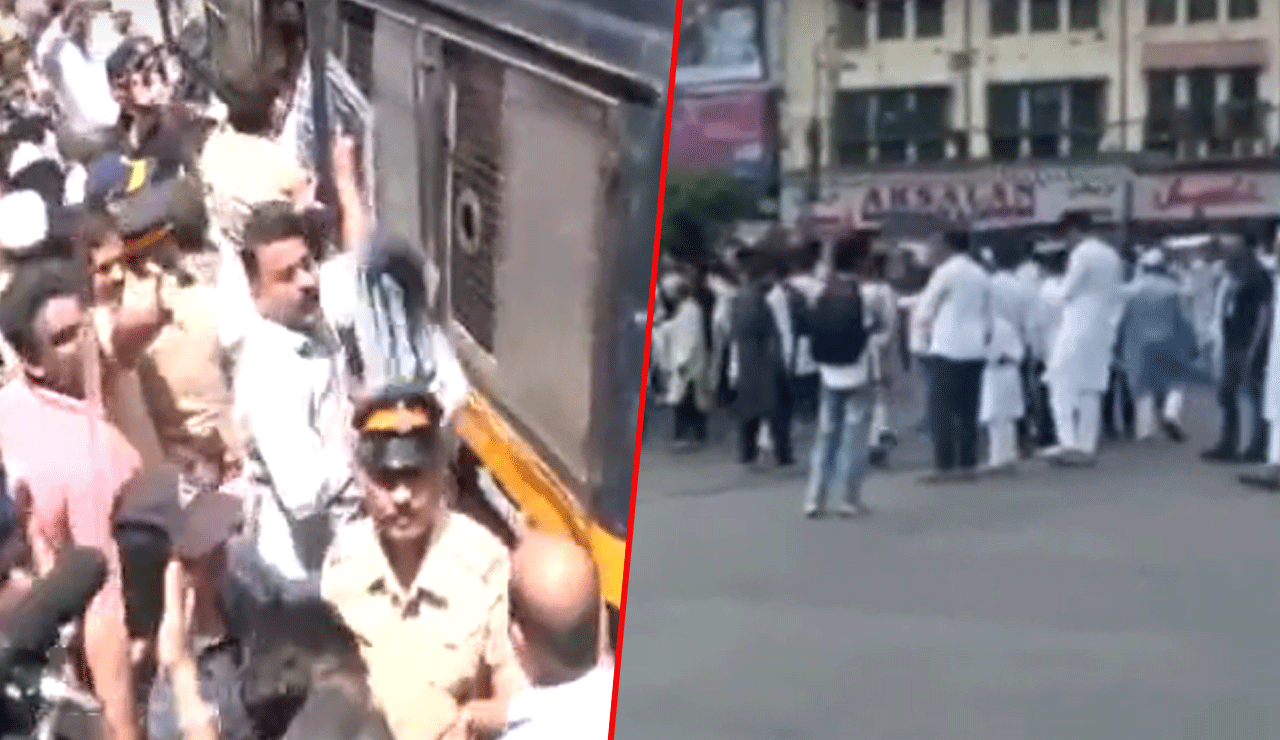Anger on the Streets: Muslim Community Protests Waqf Act Changes
Massive protests broke out across several Indian cities, including Mumbai, Kolkata, Jaipur, Lucknow, and Srinagar, on Friday, as members of the Muslim community voiced strong opposition to the recently enacted Waqf (Amendment) Act, 2025.

New Delhi: Massive protests broke out across several Indian cities, including Mumbai, Kolkata, Jaipur, Lucknow, and Srinagar, on Friday, as members of the Muslim community voiced strong opposition to the recently enacted Waqf (Amendment) Act, 2025.
Demonstrations began shortly after Friday prayers, with thousands taking to the streets, holding placards and chanting slogans against what they termed a direct assault on minority rights and religious autonomy.
Table of Contents
AIMIM Leader Waris Pathan Joins Mumbai Protest
In Mumbai, senior AIMIM leader Waris Pathan was spotted at a major protest site, lending political backing to the agitation. The protestors accused the central government of pushing through a law without adequate consultation with religious bodies or affected communities.
Students Protest in Kolkata, Raise Minority Rights Concerns
Meanwhile, in Kolkata, students from Aliah University organized a peaceful protest march, raising concerns over the implications of the amendment on Waqf properties and religious endowments. Similar demonstrations were reported in several other cities, highlighting the pan-India scale of unrest.
Waqf (Amendment) Act 2025 Passed Despite Opposition
The Waqf (Amendment) Act, 2025 was officially notified on April 8 after receiving Presidential assent from President Droupadi Murmu on April 5. It was passed in the Lok Sabha on April 3 with 288 votes in favor and 232 against, and later in the Rajya Sabha with 128 votes in favor and 95 opposed.
Petitions Filed in Supreme Court Challenging Constitutional Validity
At least 10 petitions have been filed in the Supreme Court, questioning the constitutional validity of the new law. Among the petitioners is AIMIM, which has labeled the amendment as unconstitutional and a threat to the autonomy of Waqf boards and associated institutions.
Also Read: Water Crisis in Hyderabad: Residents Forced to Drink Contaminated Water
The Supreme Court will hear these petitions on April 16, with a bench headed by Chief Justice Sanjiv Khanna presiding over the matter.
Centre Files Caveat to Prevent Ex-Parte Orders
In anticipation of legal challenges, the Centre filed a caveat on April 8, urging the court not to pass any ex-parte order without hearing the government’s side. A caveat ensures that no decision is taken without the central government’s representation in matters of public significance.
Nationwide Tension Rises Over Minority Rights and Religious Freedoms
As the debate around the Waqf (Amendment) Act intensifies, protests are expected to continue over the weekend. Activists, political leaders, and religious scholars have called for nationwide dialogue to address the concerns of the Muslim community and ensure that religious freedoms enshrined in the Constitution are not compromised.
